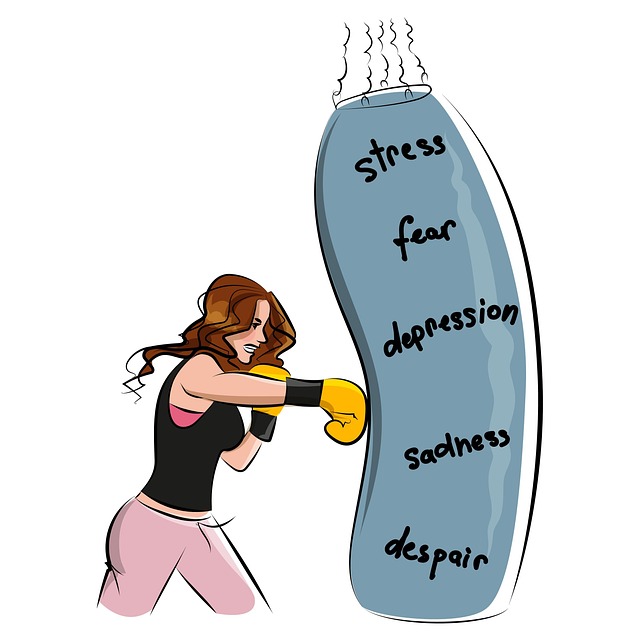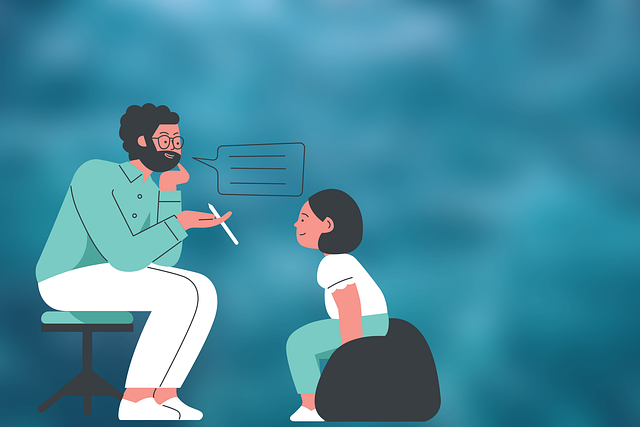Superior First Responders Therapy emphasizes cultural sensitivity as a cornerstone of effective mental healthcare. By understanding and respecting diverse backgrounds, therapists build trust and create meaningful relationships. They tailor interventions using traditional coping mechanisms and cultural narratives, enhancing engagement and outcomes, especially in mood management. The organization bridges cultural gaps, advocates for equitable representation, and incorporates holistic healing methods. Effective communication through active listening, empathy, and open-ended questions fosters trust and deeper engagement. Continuous cultural learning ensures practitioners stay updated to meet the unique needs of diverse communities, promoting emotional well-being and safe, inclusive environments.
In today’s diverse society, cultural sensitivity is paramount in mental healthcare. Understanding and navigating cultural nuances can significantly improve patient outcomes, especially in communities served by Superior First Responders therapy teams. This article explores key aspects of culturally competent practice, addressing barriers and offering strategies for effective communication and engagement. We delve into the importance of continuous cultural learning to enhance services, ensuring mental healthcare is accessible and responsive to the unique needs of all individuals.
- Understanding Cultural Sensitivity in Mental Healthcare
- The Role of Superior First Responders in Diverse Communities
- Overcoming Barriers: Challenges in Culturally Competent Therapy
- Strategies for Effective Communication and Engagement
- Enhancing Practice Through Continuous Cultural Learning
Understanding Cultural Sensitivity in Mental Healthcare

Cultural sensitivity is a cornerstone in delivering effective mental healthcare services, especially when working with diverse patient populations. It involves recognizing and appreciating the unique cultural backgrounds, traditions, and beliefs of individuals seeking therapy. At Superior First Responders Therapy, we understand that mental health issues do not exist in a vacuum; they are deeply intertwined with one’s cultural identity. This awareness is crucial for building trust and fostering meaningful therapeutic relationships.
By incorporating culturally sensitive practices, therapists can ensure that self-awareness exercises and emotional regulation techniques resonate with clients’ experiences. For instance, when addressing mood management, understanding cultural perspectives on mental illness and healing can shape the approach taken. This might involve adapting interventions to respect traditional coping mechanisms or incorporating cultural narratives into therapy sessions, thereby enhancing engagement and outcomes for diverse patients.
The Role of Superior First Responders in Diverse Communities

In diverse communities, Superior First Responders play a pivotal role in bridging cultural gaps and facilitating access to mental healthcare services. These individuals are trained to understand and navigate complex cultural nuances, ensuring that therapy remains sensitive and effective for various ethnic, racial, and socioeconomic backgrounds. They employ Emotional Well-being Promotion Techniques tailored to specific communities, fostering trust and encouraging open communication. By serving as culturally competent advocates, First Responders address barriers often faced by underrepresented groups in mental healthcare, ultimately improving overall Resilience Building.
Moreover, their presence is crucial for advocating on behalf of these communities, pushing for equitable representation within the mental health policy landscape. Through ongoing Mental Health Policy Analysis and Advocacy, they ensure that services align with cultural values, traditions, and language preferences. This holistic approach to mental healthcare not only benefits individuals but also strengthens community bonds by promoting understanding, acceptance, and collective emotional well-being.
Overcoming Barriers: Challenges in Culturally Competent Therapy

Overcoming barriers in providing culturally competent therapy is an essential step towards ensuring quality mental healthcare for diverse communities. One significant challenge lies in understanding and respecting different cultural beliefs and values, which can often clash with traditional Western therapeutic practices. For instance, individuals from certain cultural backgrounds may prefer a more holistic approach to healing, incorporating practices like mindfulness meditation and traditional healing rituals. Incorporating these practices into therapy sessions, as advocated by Superior First Responders Therapy, requires a deep understanding of the client’s cultural context.
Emotional intelligence plays a pivotal role in bridging this gap. Therapists must cultivate self-awareness and cultural sensitivity to recognize and adapt to the emotional responses of clients from various ethnic and cultural groups. This may involve learning about specific cultural norms surrounding emotional expression, privacy, and communication styles. By doing so, therapists can create a safe and non-judgmental environment, fostering open dialogue and encouraging clients to explore their mental wellness in a culturally relevant manner.
Strategies for Effective Communication and Engagement

Effective communication is a cornerstone of successful therapy, especially when navigating cultural sensitivities. Superior First Responders Therapy (SFRT) emphasizes active listening, encouraging patients to share their unique perspectives and experiences freely. Therapists must be adept at asking open-ended questions, creating a safe space for expression, and demonstrating genuine empathy. This approach fosters trust and facilitates deeper engagement, allowing individuals from diverse backgrounds to access the support they need.
Cultural competency goes beyond basic awareness; it requires therapists to adapt their communication strategies. Incorporating elements of Mental Health Policy Analysis and Advocacy into therapy sessions can help address systemic issues impacting patients’ mental well-being. Additionally, organizing Stress Management Workshops Organization tailored to specific cultural needs can provide valuable tools for coping with stressors that may be unique or more prevalent within those communities. Preventing burnout among therapists is also crucial; when practitioners prioritize self-care and implement strategies to mitigate work-related stress, they can maintain the energy and presence necessary to support their clients effectively over time, especially in diverse healthcare settings.
Enhancing Practice Through Continuous Cultural Learning

In today’s diverse society, cultural sensitivity is no longer an option but a necessity in mental healthcare practice. Continuous cultural learning acts as a powerful tool for Superior First Responders Therapy, enabling professionals to understand and address the unique needs of clients from various backgrounds. By integrating this approach, mental health practitioners can significantly enhance the quality of care they provide. This involves keeping up with Mental Health Awareness, embracing diverse perspectives, and continually expanding knowledge about different cultural practices and beliefs that impact emotional well-being.
Through ongoing training and exposure to various cultures, professionals can develop the skills needed to offer tailored support, fostering a safe and inclusive environment for all clients. Promoting Emotional Well-being is not just about treating symptoms; it’s about respecting and honouring each individual’s cultural identity as a fundamental aspect of their overall mental wellness. This continuous learning process ensures that practices remain updated, relevant, and responsive to the evolving needs of our increasingly diverse communities.
Cultural sensitivity in mental healthcare is no longer a consideration—it’s a necessity. By recognizing and addressing cultural barriers, professionals can provide more effective Superior First Responders Therapy tailored to diverse communities. Through continuous learning, open communication, and culturally competent strategies, we can enhance care, build trust, and ultimately improve outcomes for all individuals seeking mental health support.













